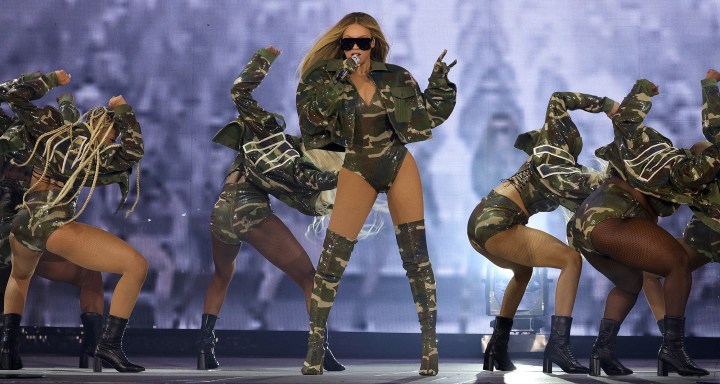BUSINESS REFLECTION
After the Bell: At your service with a fresh experience

In the service economy, you are, by definition, selling something intangible. But in the experience economy, you are doing that and more: you are selling a memory.
If you are — how should we put this? — slightly longer in the tooth, you might not have noticed that there are not one but two enormously important events taking place at the moment that may be considered so by your children and perhaps even your grandchildren. I’m referring, of course, to the global tours of Taylor Swift and Beyoncé.
The two women are, by a whole range of criteria, the biggest pop stars in history. Swift is the only living artist to have 11 albums concurrently on the Billboard 200 charts; the Beatles hold the all-time record at 19. She is the only artist to have had a #1 album in every one of the past five years, and the most staggering of all, 25 of the songs on the Billboard 100 chart this past Friday are sung by Swift, the charting website Chartr tells us.
Swift is currently on a worldwide tour, called the Eras Tour, which has grossed around $300-million so far, and it now seems likely that it will rake in about $1.4-billion.
Beyoncé’s Renaissance World Tour started more recently, but the trends are the same — huge audiences, astronomical ticket prices (sold out in minutes), and both will cover the globe. Fans are spending around $1,300 on average on Beyoncé’s appearances, and this tour too is likely to gross more than $1-billion. The Eras Tour will have 131 shows and runs till next month, while the Renaissance World Tour will only end in February.
If that gross income transpires (it will), the world will have never seen anything like it. The largest-grossing concert tour so far was Elton John’s Farewell Yellow Brick Road, which took in probably around $930-million, but the tour lasted five years and consisted of double the number of shows. Even adjusted for inflation, U2’s epic 2009 to 2011 tour took in a little less than $1-billion.
The shows underline a new kind of capitalism of the 21st century: the experience economy. In some senses, the experience economy is really just an extension of the service economy. But there are differences, as this (now quite dated) Harvard Business Review article describes.
In the service economy, you are primarily selling some kind of utility; but in the experience economy, what is important is, well, the experience. In the service economy, you are, by definition, selling something intangible; but in the experience economy you are doing that and more: you are selling a memory. Services are customised; experiences are personal. In the service industry, the buyer is the client, in the experience economy, the buyer is something akin to a guest. The service industry provides clients with benefits; the experience industry provides guests with sensations.
Does this all matter? After all, the experience economy has been part of the service industry for years. Think of going to a movie; there is a physical product — the movie — but what is being sold is not the movie as such, but the experience. Going to a casino is not dissimilar.
But I think it does matter. The world has been obsessed with technological change and industrial revolutions of different types for years. I suspect we still feel things are more important, in the long run, than the emotions that surround them. But as the world gets richer, times are changing.
There is one aspect of the original Industrial Revolution that is instructive here. Most people identify the Industrial Revolution with the invention of the spinning jenny by James Hargreaves in 1770 and the power loom by Edmund Cartwright in 1785. There were many more steps in the cotton industry’s advancement, but whatever the case, the combination allowed the British apparel industry to at last outperform the Indian industry.
What it also did was lead to an absolutely huge increase in the amount of cotton produced. The British textile industry used 24 million kg of cotton in 1800; over the next 50 years that increased to 266 million kg and the number of cotton factories increased from practically none in the late 1700s to just under 1,000 at the turn of the century.
Now at some point, somebody must have worried that if the cotton industry was producing so much fabric, everybody in Britain would have a suit or a dress to wear to church on Sunday. What would happen then? Would the industry whither and die?
As it turns out, not so much. Just as manufactured clothing became ubiquitous, something dramatic happened: the fashion industry appeared. All of a sudden, people needed different kinds of clothes for different things: there were work clothes, casual clothes, and clothes to attend the Barbie movie.
Isn’t that development roughly analogous to what is happening now with the development of the experience economy? Once people wanted clothes; then, if they could afford it, they wanted fashion. Once we wanted services; now we want experiences.
I have an odd suspicion that, increasingly, the service industry is in for a big wake-up call. DM




















 Become an Insider
Become an Insider
Anyone out there looking for an experience in maintaining road infrastructure in Constantia or Khayalitsha?
Interesting piece, but the missing ingredient is that these dynamics all happen in cities, where the dense concentration of people and firms spur competition, comparison and creativity. That was vital for the industrial revolution.
Why do people spend so much money attending live concerts when they could watch online for free? Because there’s nothing like personal interaction to generate the buzz and lasting experience.